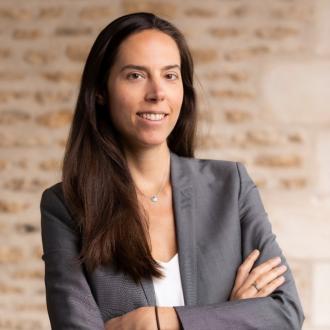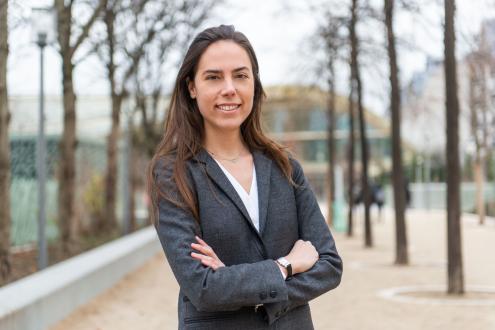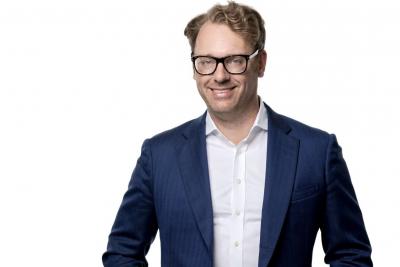Digital Data Provider Kaiko’s CEO Examines the Expanding Cryptos & Digital Assets Universe

Mar 23, 2023
Kaiko is a global digital assets data provider and a prime mover (founded in 2014) that presents itself as the leading provider of digital assets market data. The firm is now 100-strong and operating globally through New York, Paris, London, and most recently Singapore and Hong Kong. Kaiko has a stated mission to empower financial institutions, regulators, and large crypto corporations with accurate, transparent, and actionable digital assets market data to be leveraged for a range of activities including strategy back-testing, in-depth research, valuation, analytics, and operational reporting. As such, Kaiko is at the cutting edge of building the market data infrastructure for the new digital finance economy. We spoke recently to Ambre Soubiran, Kaiko’s dynamic CEO, while in Singapore visiting from her home base in Paris, to learn more about the firm, its offering and herself. It turned out to be a remarkably detailed discussion with someone who very evidently has an extraordinary grasp of, and genuine passion for, her subject.
We have presented this as a Q&A to ensure none of her views and insights – all articulated with great eloquence and verve - are in any way ‘lost in translation’. Incredibly, Ambre, a mathematician by training and a financial derivatives expert in her career before Kaiko, still finds the time to sail on the open oceans, to ski, to enjoy quality time with her two very young children, and even has a third child on the way. All of which is quite astonishing, or as the French might say – ça c’est vraiment incroyable!
Hubbis: What is Kaiko, what do you do, and why?
Ambre Soubiran: Kaiko is a market data provider in the realm of digital assets. And what we do is that we are connected to every single exchange or marketplace or trading venue globally, where people can buy or sell crypto assets, which includes the centralised exchanges, names such as Coinbase, Kraken and Binance. We are connected to about 150 cryptocurrency exchanges globally, from which we collect, in real time, all of the order book data, as well as every single executed transaction.
Away from the centralised exchanges, there are other marketplaces called DEXs, or decentralised exchanges, where people can buy and sell cryptocurrencies on a peer-to-peer network directly on the blockchain.
We also run our own blockchain architecture, in order to see the blockchain in real time and to get information from the blocks about that market data activity that is being generated directly on chain.
We work with institutions. We work with hedge funds, asset managers, financial institutions, and we work with leading regulators globally. We work with large crypto corporates, such as custodians, exchanges, large protocols, and it is fully B2B.
We operate a market data business that is very classic, in the traditional financial markets sense. We have a market data business, which includes historical data and real time data. We have a BMR-regulated index business that we use to create data products that can be used for the purpose of building financial instruments such as ETFs. We have a quantitative analytics business, where we issue mostly risk management solutions for financial investors. And then we have our research business, which is our data driven research division that is picked up by global financial media very regularly.
The realm we work in is crypto-currencies and digital assets, specifically around the data generated by the market and trading activity. For example, if you are a first-time buyer in US or Singapore Dollars and you want to buy a Bitcoin, you have to create an account here on the local exchange, you are going to credit your account with Singaporean Dollars and you're going to place a buy order for a Bitcoin.
That is the kind of information that we track including the size of your buy order, the time of your buy order and whether or not that buy order is matched against a sell order, and what is the resulting price at which the transaction was executed.
Price formation in crypto is driven by the markets. Beyond key information on prices and executed volume, we also track total volumes and the market depth and liquidity that is placed on exchanges.
Hubbis: How would you describe the relationship or linkages between cryptos and blockchain?
Ambre: Blockchain technology is the intersection of three things. A blockchain is i) a database that is ii) maintained by a network, and that network is iii) incentivised to maintain the database by a unit of account called cryptocurrency, and that element is actually what results in transaction fees to a decentralised network of people that are going to create blocks and maintain the integrity and the execution of the blockchain.
In short, I like to explain the blockchain by just drawing a triangle and saying it's a database, it is a network, and it is a unit of account. If you remove any of those three things, you do not have a blockchain.
Blockchain technology is about the execution of contracts, in a transparent, secure and automated way. We call them smart contracts because the execution is completely transparent, and completely secure. Why is that? It is because the execution of that contract is run by a network that has absolutely zero skin in the game with the parties that are involved in the transaction. That guarantees the execution and the censorship resistance-ness of blockchain-based contract execution.
I worked for about a decade in traditional equity derivatives in a major bank from mid-2008 onwards. The execution of a simple equity derivative contract in a bank relies on many different elements within the back, middle and front offices of those banks, and then there is T+X settlement and so forth. This all means many operational risks; it means it is incredibly cumbersome and also expensive.
For me, the multi-billion-dollar opportunity of blockchain is in disintermediating all those steps and thereby eliminating the risk of human error and all the other time delays and costs.
Hubbis: Does that mean blockchain is disrupting the banking industry and the capital markets intermediaries out of business?
Ambre: Actually, we are not disrupting the banks. The front office, client-facing bankers will still do what they do, but blockchain can absolutely help them. And when we hear banks talk about tokenized securities, or tokenized financial instruments, using Blockchain as an underlying financial infrastructure, it is about operational efficiencies and it is all about execution of contracts in a transparent, secure, automated way, that actually disintermediates elements of the current financial market tech stack that are not value additive.
I really think that blockchain technology is not an evolution; it is a revolution, as it will signify a change of business model in the way we execute contracts. Coming as I do from the derivatives world, I am especially interested in how all this will apply to real estate, to government bonds, or perhaps to SME financing.
Hubbis: Thinking ahead a good number of years, how does all this pan out in your view?
Ambre: I think in 10 years, or hopefully only five years, we will have tokenized most traditional assets and financial instruments. In such a world, two things will be critical:
First, we will need people who can design high quality smart contracts, because the contracts that the current financial industry relies upon will be translated into code in a way that is entirely secure and hack-resistant.
Second, we will need high quality market data. Today, we are a crypto data provider, but as asset tokenization comes to the foreground we will become a data provider for tokenized assets. And tokenization is already enjoying more proof of concept globally, both from regulators and large financial institutions on tokenizing bonds, tokenizing debt. These contracts will be financial contracts that refer to any underlying, let us say a listed equity such as an Apple share, and the contract is a simple call option on that underlying Apple share.
But the contract will be written and launched on a blockchain. And in order for that contract to settle and to calculate all of the actual cash flows that need to be settled at maturity, this contract needs to be “fed” with market data. What I need to do is to come into the blockchain and provide that piece of code with the financial price, the actual assets information of the underlying of that contract.
The combination of good code and good data will translate to good execution and everything in terms of the actual execution of the contract is conducted seamlessly through the blockchain. In a blockchain enabled world, quality of code and quality of data are critical.
Accordingly, we see Kaiko’s evolution from a crypto market data provider to a market data provider of blockchain assets, which today is cryptocurrencies and which I believe in years to come will be any kind of assets.
Hubbis: To what extent have the FTX collapse, the Celsius crisis and other problems at crypto exchanges or intermediaries been impeding the market’s progress?
Ambre: Actually, all these problems have put a very necessary and timely focus on risk management. The risks are very typical in any segment of the financial industry, such as counterparty risk, and liquidity risk. Addressing liquidity risk first, to understand that requires an understanding of the market depth of the various digital assets on the various exchanges and that is what Kaiko provides, related to both the centralised and DeFi exchanges. Liquidity risk can only be solved by better markets, and better access to market data.
Counterparty risk is a big issue and can be solved by more transparency, more public accounting and access, better practices and better regulation.
There is also a new type of risk that is specific to crypto, and that is smart contract risk, namely vulnerabilities in the code that can be exploited by hackers. The blockchain thus far has never been hacked, but hacks have occurred by exploiting smart contract code vulnerabilities. In an automated contract execution world, if there is a code vulnerability, it is a big problem.
Fraud is a major risk across financial markets, and that type of counterparty risk seems to have been in play in the FTX debacle. It appeared that their holding of FTTtokens was valued on the balance sheet (and used as borrowing collateral) at an USD8 billion face value, whereas the actual ‘real’ organic liquidity of that token was much, much lower. This was exposed once Binance tried to sell down their FTT position on the market, and the industry realised there was no liquidity for that token, but the harm was done.
All of these issues can be partly solved by data, so when we sell our services to clients and institutions and regulators – and we currently work with the European Market Authority, the European Banking Authority, the OECD, we work with the US regulators as well – we are bringing that element of trust and transparency on market structure and market financial information that is absolutely key in understanding the market risks of assets.
Hubbis: Where has the world of regulation advanced to thus far, and why is there not greater consistency between regulators in different jurisdictions?
Ambre: First of all, I think we need to differentiate the regulatory framework that is going to be applied to centralised entities such as exchanges providing onboarding and offboarding services into crypto. In Singapore, you have MAS licensed exchanges, such as CoinHako, Independent Reserve, SGX, and others. These entities have formal structures, normal management organisation, and so forth.
Then there are the DeFi applications, which are very different and rather geeky, and it is very difficult to regulate them as they are not formalised entities. It is therefore very tough to regulate decentralised exchanges. Moreover, it is very difficult to regulate the actual blockchain world, as it is a peer-to-peer network. I would go so far as to say that if regulators try too hard to regulate the on-chain world, they will get bloody noses, as that would be just as naïve as trying to regulate the internet.
But the regulators are really concentrating their efforts on the centralised world, on actual providers of services to the digital asset industry, starting with the centralised exchanges. In my view, there is no reason at all not to treat them like any other regulated business, subject to audits, regulation, and effective supervision. Frankly, what we have seen with FTX is completely crazy - these businesses should be audited. Surely as soon as you hold customer deposits and customer funds, you should be properly regulated and supervised, that is normal. We need centralised exchanges to serve as on and off ramps into the digital asset world, these are crucial in enabling the growth of the industry, and it is normal that they should operate as proper businesses (which I believe most of them do!).
Regarding differences and nuances between different jurisdictions, especially in the APAC region, I cannot comment directly. But I can say that, for example, Hong Kong has launched this consultation for rolling out a new regulatory framework from June 2023, and we are participating to that effort to remind everyone that market data hygiene is important, and that risk management, through market data, is important.
Hubbis: If you gaze into the future over perhaps the next couple of years, what are your key priorities as a firm?
Ambre: Our key priority for this year is commercial development, or sales, largely to financial institutions, like asset managers, fund administrators, hedge funds, TradFi institutions, anyone venturing in the crypto and digital asset spaces, or thinking of doing so. We are already a team of 100 people globally, and we serve just under 200 clients, from our offices in New York, London, and Singapore, the last of which we opened for APAC in February 2022.
We have spent recent years building the product, acquiring businesses, consolidating product and growing new business units within Kaiko that are typical to a broad-based financial and market data business, such as the quantitative analytics business, the index business, and now we need to focus on capturing the value, bringing that narrative and that value proposition to institutions and selling.
We are well primed and positioned to sell, as, quite surprisingly, the events of 2022 did not put off these institutions. On the contrary, I think it's been shaking things around,helping our narrative with a sharper focus on understanding the risk in the markets. There is not a single major institution globally that does not have a digital assets team today, so the progress has been dramatic in recent years.
A major challenge is maintaining a balance between addressing today’s market which is clearly mostly driven by cryptocurrency investors, and preparing tomorrow's market, which for me will be about the tokenization of capital markets and the data needed to enable automated on-chain contract execution.
Another priority is consolidating our global presence. Interestingly, the US is the market where we have the strongest competition, and that is our biggest market today, representing some 55% of revenues currently. Europe is some 35% of our business today, and that has been the region showing the stronger growth in 2022, with our EMEA revenue actually more than tripling in 2022.
We are the only institutional provider in APAC, so we aim to grow our market share rapidly and capitalise on that first mover advantage. The key challenge in APAC is convincing people that buying data from us is better than trying to pull it together themselves, and actually it will be cheaper and better for them. Moreover I think it should be a regulatory obligation to have third-party independent data rather than for example calculating your daily NAV based on the data that you assemble and choose yourself wherever you find it suitable.
Hubbis: We are sure our readers would be interested in knowing more about you and your background. Can you get a bit personal with us?
Ambre: I am French, I was born in Paris where I currently lives, but I am constantly on the road, spending most of my time between NYC, London, and Singapore.I studied Applied Mathematics and Computer Engineering in Paris at the Dauphine University, then (not unlike many French math majors!)actually began working on the trading floor at HSBC in May 2008, roughly a month before Lehman’s collapse, where spent about a decade working in London in equity derivatives.
I was actually in a vertical within equity derivatives that I find very interesting, which is covering the large, listed corporate clients, meaning that I was working with the M&A teams and with CFOs of large public companies to work on extracting cash and value and protecting downside on their listed equity.
On the home front, I have a partner (also in blockchain!) and we have two young daughters, and another on the way. When I get away from the office, they take up my early mornings and my early evenings, and actually provide me with a wonderful change from my very intensive working life. Some people meditate, some people exercise, but I just put my phone down, log off for an hour to play with my kids, and it really works for me.
I have a passion for world-changing technologies and have been personally interested and invested in the digital assets space since 2012. My interest in innovation also spans key areas such as healthcare and agriculture. All these are major growth areas, and they have come a long way in a relatively short time.
I am also a keen sailor, and while at HSBC even competed in a transatlantic sailing race with my father, who is an avid and excellent sailor (he is currently, at 80 years old, sailing around the world!).
I love skiing, often in the French Alps and also recently in the Italian Alps at Cortina d'Ampezzo, which was great. My partner and I love Northern Italy (and the local wines…!), and Cortina is only about two hours’ drive from Venice, a favourite place of ours to visit.

CEO at Kaiko
More from Ambre Soubiran, Kaiko
Latest Articles






